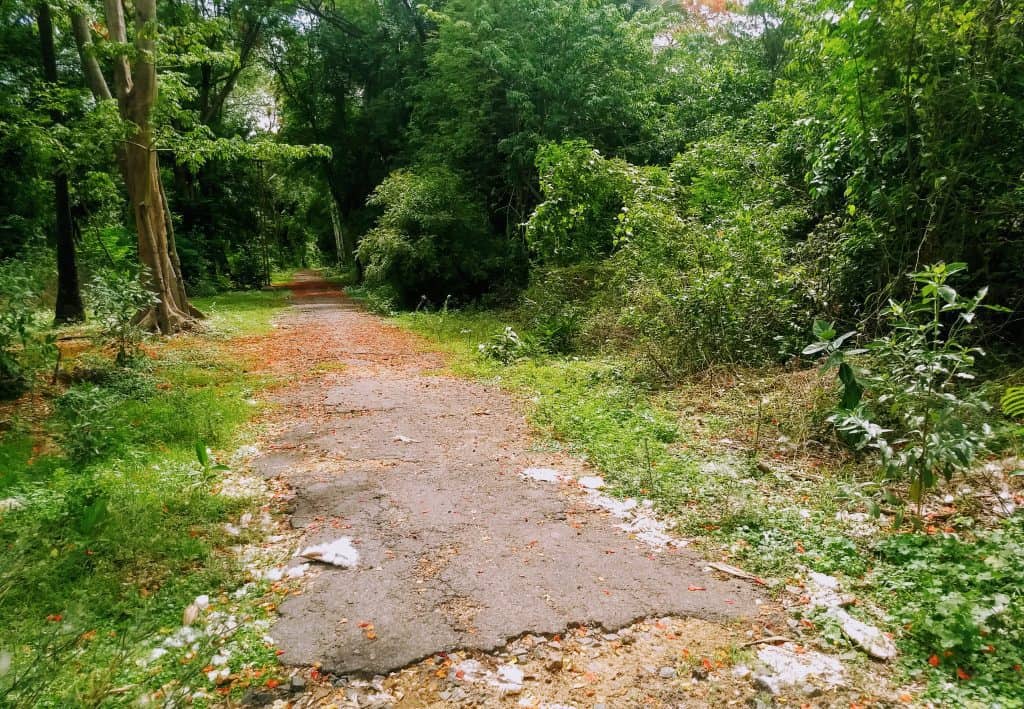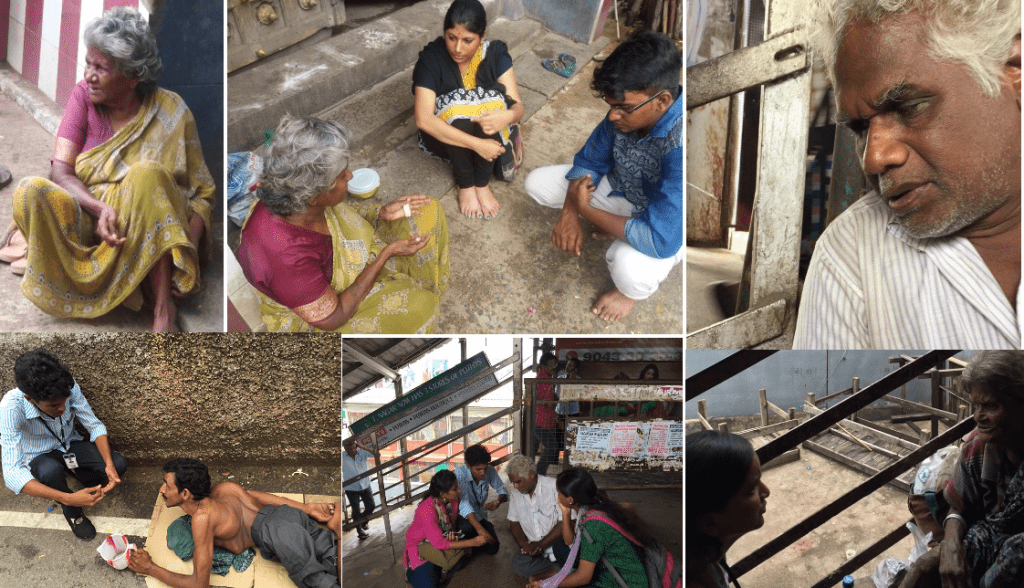9.45 acres. Three officials in charge and at least 1.5 lakh rupees of public money spent every month on this near-defunct institution. These details pertain to the only government beggar rehabilitation centre located at Melpakkam near Avadi that has had no inmates for more than three years now.
There are three permanent officers who live at the Centre itself, besides 14 officers who work on deputation basis. Even if we ignore the salaries of deputed officers for the time being, who also work in leprosy homes in Tamil Nadu, the three officers are paid between 40,000 to 70,000 every month, as shared by a trusted source.
The three officials who live in the rehabilitation centre have only one job to do: prevent media and non government organisations from entering the premises. “We would be fired, if we give out information and let you take pictures,” said one of the staff at the centre.
The Centre – then and now
Said to be more than 100 years old, the centre is also called Mahanadu, after a movie featuring important scenes involving beggars, Parasakthi, was filmed here in the 1950s. Locals say that it was once a military camp, after which it functioned as a juvenile home for a while. A giant banyan tree, under which the Sivaji Ganesan-starrer Parasakthi was shot, conveys the legacy of the dying rehabilitation centre.
“In the movie, a rally of beggars called Mahanadu was conducted under this banyan tree. Since then, people know the place only as Mahanadu, not as beggar rehabilitation centre,” says a former employee of the centre.
The exact year in which the rehabilitation centre was set up is not easily available but its objective was to provide shelter and recreational facilities for beggars, besides teaching them livelihood skills. Arrested beggars from all over Tamil Nadu are to be sent to the centre, as per the orders of the district magistrate.
The fluff from the cottonwood trees fills the battered tar road leading to the centre’s main building. As this reporter reaches the main building, three shabby rooms (a hall, a kitchen and a room for lifeskills training), with peeling paints and cobwebs are sighted. Broken windows and rusted furniture is all that you see in the massive hall, which has the capacity to house 100 inmates. The centre which had 257 beggars in 1983, had only three inmates till three years ago, when they were released after completion of their tenure.

The road that leads to main building of the beggar rehabilitation centre in Melpakkam, 35Kms from Chennai. Pic: Laasya Shekhar
The officers who once had busy professional lives manning the centre, are technically jobless now (though their salaries are deposited every month). “Our days used to revolve around the beggar fraternity. We shared their agony as they spoke about how demeaning their profession was. Even so, a majority of them would try to run away from the centre, which would result in our suspension. They were mostly beggars who had been arrested, and were sent to this centre for rehabilitation rather than the prison,” remembers one employee.
Based on the information given by the beggars, the officers would send letters to their families for a possible reunion. A sad reality is that in 95 percent of the cases, families did not welcome them. “It is also one of the reasons why they go back to the profession after their tenure in the rehabilitation centre. But what gives us contentment is the 5 percent who undergo a positive transformation,” he said.
Citizens in the locality share similar stories. “There have been no beggars here for quite a long time now. Earlier, we used to witness beggars jumping off the fence of the centre, after which a high raised wall was constructed,” said Arun E, a resident.
The decline of the rehabilitation centre happened at a slow pace. Non-recruitment of staff and zero incidence of arrests were valid factors. “There were once trainers to teach the inmates skills such as cloth and mat weaving, tailoring, carpentry, agriculture and shoe making and repairing. The government has not recruited anyone since the existing batch retired,” said the employee.

Former social work students of Madras School of Social Work (MSSW) talk to beggars in the city, as part of their project. Credits: MSSW
Official procedure for rehabilitation
Under the Tamil Nadu Prevention of Begging (Amendment) Act, 1964, police can arrest any person seeking alms without a warrant. However, people earning a livelihood by displaying their skills and talent, even if on the streets, cannot be counted as beggars, the Act says.
Detained persons should be produced before the nearest magistrate within a period of twenty-four hours of arrest. It is the duty of the magistrate to order a medical officer not below the rank of assistant surgeon to examine them and determine their age and physical capacity for ordinary manual labour of the arrested beggars. If the beggars are proved to be under 18 years of age, they are to be sent to children’s homes, after being produced before the juvenile court. Differently-abled beggars should be admitted in the government-maintained homes across the state.
“If the charges of beggary are proved by the police, beggars (above 18 years of age and healthy) can be punishable with imprisonment up to six months or they may be sent to the rehabilitation home. The magistrate, instead of sentencing the offender can mandate detention in the rehabilitation centre for a period of not less than one year and not more than three years,” said V Kannadasan, noted criminal lawyer, practising at Madras High Court.
Why is the centre empty today?
Every department gives a different reason. A senior police officer vehemently asserted that the metropolitan city has no beggars, and that is the reason why no arrests were made. However, any Chennaiite who commutes in the local trains and buses and every motorist who pauses at a red signal encounters beggars every day. They are unavoidable. A colony in Chengalpet is filled with people who have been begging for generations. The city police is either unaware of their presence or have just chosen to relegate the entire issue to the background, not considering it their priority list.
Conversations with the various sources spoken to seem to indicate that there is a clear understanding between police, judiciary and the department for the differently-abled (the nodal body for the centre). “The police make no arrests. The magistrate forgives the beggars even after repeated arrests. I do not feel they want the centre to continue functioning. But why run it then, instead of decommissioning it?” the former employee questioned.
Despite repeated calls and text messages, the deputy director of the department did not respond. Like various other questions, therefore, this too remains unanswered.
This is how public money is wasted. People should be made aware of this
don’t blame this beggars rehabilitation centre. have you seen any beggars in tamilnadu.
Hi dhana.. If you aren’t new to TN you would have witnessed them in many traffic signals..
If there are no beggars then close this center instead of spending 1.5 lakhs per month on it!!!
But we do have beggers on the street!!!!!!